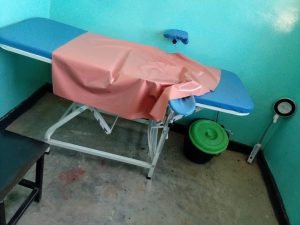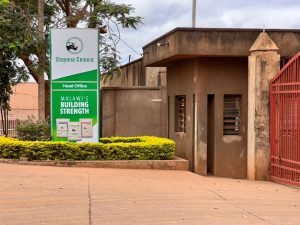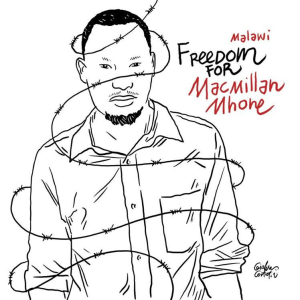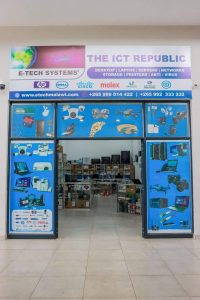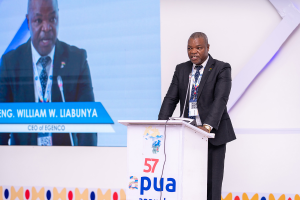SCANDAL EXPOSED IN PASSPORT PRINTING CONTRACT
Immigration Department Faces Scrutiny Over Contract with Company Linked to Chakwera, Sparking Transparency and Procurement Concerns
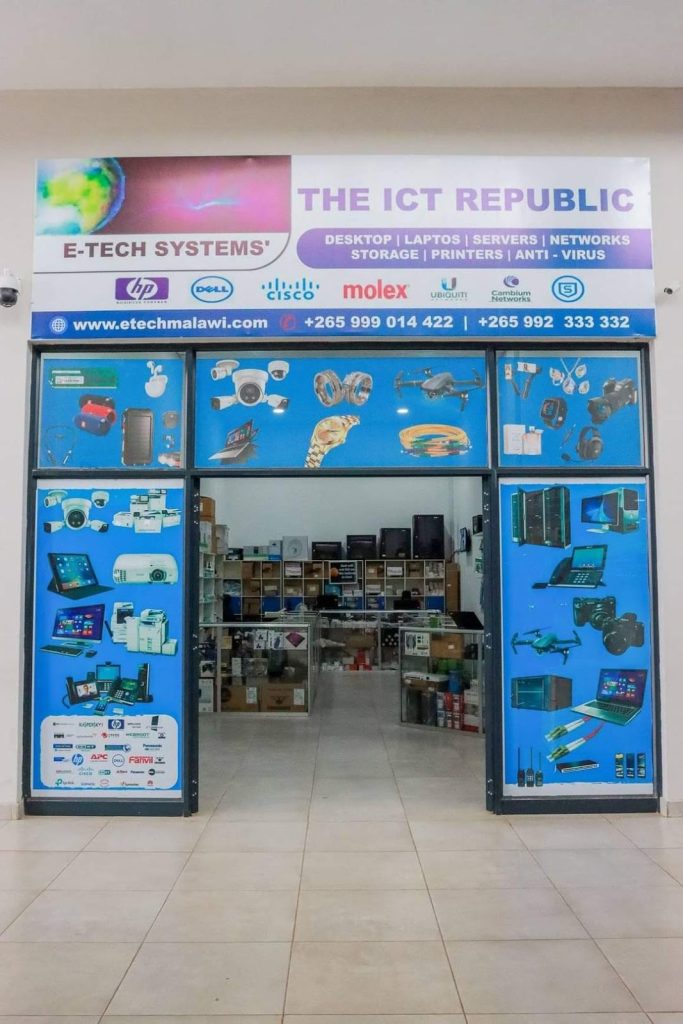
… Controversy Erupts as Malawi’s Immigration Department Awards K896 Million Passport Printing Contract
… E-Tech Charges Government K6.8 Million Daily for Printing Only 150 Passports
BY JACK MCBRAMS
Last month, Malawi’s Immigration Department awarded a K896 million, six-month contract to E-Tech, a local software company, to print passports—a decision that has sparked widespread controversy.
The Platform for Investigative Journalism scrutinised this contract, which has raised significant concerns about the department’s transparency and adherence to procurement regulations.
E-Tech’s K896 Million Contract Details Revealed
Under the terms of the contract, E-Tech is responsible for providing comprehensive ICT services, including the design, development, and installation of a temporary system for passport issuance, as well as the supply and installation of passport printers.
The substantial contract amount, K896 million—exclusive of local taxes and duties—translates to approximately K150 million per month or a staggering K6.8 million per day, sparking widespread concern over the expenditure.
The decision to award the K896 million passport printing contract to E-Tech through a single-source procurement method has intensified concerns among legal and procurement experts. They contend that the significant expenditure should have undergone an open tender process. Additionally, insiders at the Immigration Department report a dramatic decline in passport production since E-Tech assumed responsibility. The company is now reportedly issuing only 150 passports daily, a stark decrease from the 12,000 passports previously produced each day by TechnoBrain.
Starting on 24 February 2024, E-Tech, a software company with no prior experience in passport printing, began a six-month contract to overhaul Malawi’s passport issuance system. Awarded at MK896 million, the contract, as reviewed by the Platform for Investigative Journalism (PIJ), includes designing, developing, and installing a temporary passport issuance system and supplying and installing passport printers. The contract amount excludes local taxes, duties, disbursements, and any other imposts for which E-Tech is liable.
Section 3 of the contract details E-Tech’s responsibilities, including developing a scalable, user-friendly software solution compatible with existing hardware. The contract stipulates implementing a system to capture and integrate new biometric data alongside developing a secure method for merging this with historical demographic information. Additionally, the contract calls for implementing a public key infrastructure to ensure secure data signing and verification and integrating Automated Fingerprint Identification Systems (AFIS) for accurate data deduplication. The use of the department’s four GET P600 Printers is specified, with provisions for considering additional models as suggested by vendors.
In addition to developing and implementing new software solutions, E-Tech’s contract encompasses several critical functions. These include seamless integration with the National Registration Bureau’s system for reliable data verification and a secure banking system integration to facilitate payment processing. The company is also tasked with conducting rigorous testing to ensure functionality, security, and performance. Furthermore, E-Tech will provide six months of comprehensive training and technical support to ensure the smooth operation and maintenance of the new systems.
Despite its rudimentary website, E-Tech Systems claims to have a broad range of qualified and skilled associates delivering ICT solutions. The company combines strategy, creativity, and technology to serve its clients.
According to their profile, “We excel in software installation upgrades, desktop and web-based software development, website development and hosting, computer hardware installation and servicing, antivirus software, internet security systems setup, and network systems management, including installation of wireless networks, point to point networks, and Virtual Private Networks. Moreover, our functional and technical experience extends to interfacing with third-party conveyors and various consultants.”
An ICT expert who previously worked as a consultant for the Immigration Department expressed scepticism about E-Tech’s capabilities to the Platform for Investigative Journalism (PIJ).
“No, they don’t have the capacity. They have never done such work before,” he stated, questioning E-Tech’s technical skills and capacity to manage the extensive passport printing project.
Additionally, he pointed out that E-Tech’s K896 million charge is excessive, especially since the company is utilising blank passports and hardware that TechnoBrain left behind.
Concerns Over E-Tech’s Performance and Costs
An ICT expert highlighted a significant backlog of blank passports at the Immigration Department, noting,
“The only new cost would be hardware in the form of servers, printers, and software. The consumables were there already,” he told us.
A senior officer at the immigration office in Lilongwe corroborated this perspective, revealing to PIJ, “E-Tech is using passport books and other consumables like films and ribbons that TechnoBrain left. I don’t know if that has been factored into the procurement deal.”
The officer noted signs of inefficiency and sluggishness in E-Tech’s operations, stating, “The printing is taking place, but not 500 a day as the minister claims; it’s around 150 passports daily. The printing process is slow as lamination is done manually, resulting in much damage.”
At this rate, E-Tech’s current output of 150 passports a day represents just 1.25% of the previous rate of 12,000 passports daily, prior to the system being hacked.
E-Tech Clarifies Role and Defends Contract Value
Raphael Msowoya, managing director of E-Tech, defended the company’s performance, stating that the equipment supplied by E-Tech on behalf of the Government has the capacity to print 270 passports per hour.
“So you can translate in the number of hours this equipment can print. E-Tech Systems’ deliverables were to provide the solution. The actual printing is done by the department,” he told PIJ.
Msowoya emphasised that the contract price was linked to specific deliverables, the main one being the ability to start printing passports within 21 days—a goal they achieved.
He also noted that the contract amount is reasonable compared to international standards, especially given the size of the work E-Tech is doing. “There are Malawians who were clamouring for a foreign business, which is very expensive, just to recover locked data without providing a new Passport Issuance System solution,” he added.
In separate interviews with PIJ, Attorney General Thabo Chakaka Nyirenda and Chief Immigration Officer Charles Kalumo defended the procurement process.
“All procedures were followed from the drawing of the contract by the office of the Attorney General. PPDA gave no objection. As required by law, ACB also approved the procurement. Additionally, the Honourable Attorney General vetted the contract. He advised that being a local transaction, the contract price, which was in dollars, should be changed to Kwacha to comply with the Exchange Control regulations,” stated Kalumo.
Immigration Chief Details Oversight and Origin of Procurement Process
The Chief Immigration Officer stated that the Office of the President and Cabinet (OPC) established a committee chaired by the Deputy SPC.
This committee included all key stakeholders, such as the PS for the Ministry of Homeland Security, PS for Information, E-Gov Innovation, Immigration, Attorney General, ACB, Solicitor General, ICTAM, Malawi Police Service, and the NIS.
However, a senior government official who attended the impromptu meeting at the AG’s office told PIJ confidently that the meeting was called to rubber stamp a decision already made.
“We were summoned to the meeting but we were not informed of the agenda beforehand. When we got there, the AG, who chaired the meeting, presented us with the contract documents and asked each of us to vet the contract as this was a national security issue. Obviously, people were ill-prepared and intimidated by the atmosphere,” he said.
On his part, Kalumo claimed that the procurement process originated from the Immigration Department’s own Internal Procurement Committee.
But when PIJ reached out to Martha Gonondo, the chair of the department’s Internal Procurement Committee, she responded tersely:
“Sorry, I don’t have any information.”
Chief Immigration Officer Kalumo explained that the decision to use a single-source procurement method was urgent.
“It was done through a single source because we needed to start printing as soon as possible. TechnoBrain quoted a very high amount, and they requested a down payment beforehand. Also included was the buying of a completely new system,” he elaborated in an exclusive interview with PIJ.
Kalumo Details TechnoBrain’s Demands and E-Tech’s Rapid Response
In a revealing disclosure, Kalumo noted that TechnoBrain had demanded $1.6 million (about K3.2 billion) for the first phase and $600,000 (K1.2 billion) for the second phase. Although the third and final phase did not have a specified quote, it required a completely new system for passport printing.
“In the third phase, there was no quote, but they gave us all details of what would be required, which was a new complete system for passport printing,” he explained.
Additionally, Kalumo highlighted that while other companies approached could deliver a solution in at least three months, with some taking as long as 12 months, E-Tech stood out by offering to do this in a record period of 21 days.
When confronted by PIJ about the K896 million value of E-Tech’s contract, Kalumo appeared to be unaware.
“I am not aware of what you are talking about,” he stated.
Attorney General Confirms Emergency Procurement for Passport Crisis
Attorney General Thabo Chakaka Nyirenda confirmed to PIJ that E-Tech was engaged in providing a temporary solution to the passport crisis.
“All procurement procedures were followed. Being an emergency, procurement was through single sourcing. The procuring entity is Immigration. They are better placed to comment. Or you may talk to the Ministry of Homeland Security,” he explained.
PPDA, ACB Approve Single-Source Procurement for Passport Printing
The Public Procurement and Disposal of Assets Authority (PPDA) confirmed to PIJ that it granted a No Objection to the Immigration Department’s request to use a single-source procurement method.
Based on the submission from the Procuring and Disposing Entity (PDE) regarding this procurement, the PPDA found the request had satisfied the grounds for using a single source as provided under section 37(9)(c) of the PPDA Act 2017. Hence, it granted its No Objection.
“Regarding whether there was an alternative, you may engage with the PDE, which conducted the market analysis and decided to submit single source the services from E-Tech,” explained PPDA spokesperson Kate Kujaliwa.
ACB spokesperson Egrita Mdala told PIJ the bureau approved the contract using provisions from the PPDA Act.
“The bureau further developed its own guidelines to follow during the vetting process. Upon noticing that the proposed method of procurement was single source, the Bureau, through the PPDA Act, the PPDA Act regulations and the ACB vetting guidelines tool assessed whether this procurement was fit to be considered for single sourcing. The bureau concluded that this was an emergency procurement which also borders on issues of national security (Check s.37 (2) and s.37 (9) (c) of the PPDA Act as read together with paragraph 24 of 4th schedule of PPDA Act regulation). The bureau made its recommendations to the PPDA including further conduct of procurement for this contract. You may wish to contact the PPDA for further comments.”
Salim Bagus, who chairs the Parliamentary Committee on Security, told PIJ that he was unaware of the contract sum for E-Tech’s passport printing services until their inquiry.
“I am hearing it for the first time from you. But we will meet with them in two weeks, and maybe during that meeting, we will ask them to explain this contract,” he stated.
Potential Political Ties in Passport Contract Come to Light
Amid speculation about political influence, it has come to light that Raphael Msowoya, the managing director of E-Tech, travelled to Serbia with MCP vice presidential candidate Vitumbiko Mumba and President Lazarus Chakwera’s son, Nick, shortly after E-Tech was awarded the passport printing contract.
While Nick and Msowoya did not respond to inquiries, Mumba spoke to PIJ to clarify his involvement.
“The trip to Serbia was purely personal. The coincidence is that the person I travelled with won the passport contract. I cannot say that he is someone I know very well, but I know him professionally. He is a professional who knows his job,” he explained.
E-Tech Denies Political Connections Amid Contract Scrutiny
On his part, Msowoya explained that neither E-Tech as a business nor himself as a Director have any relationship with President Chakwera, Nick Chakwera or the MCP.
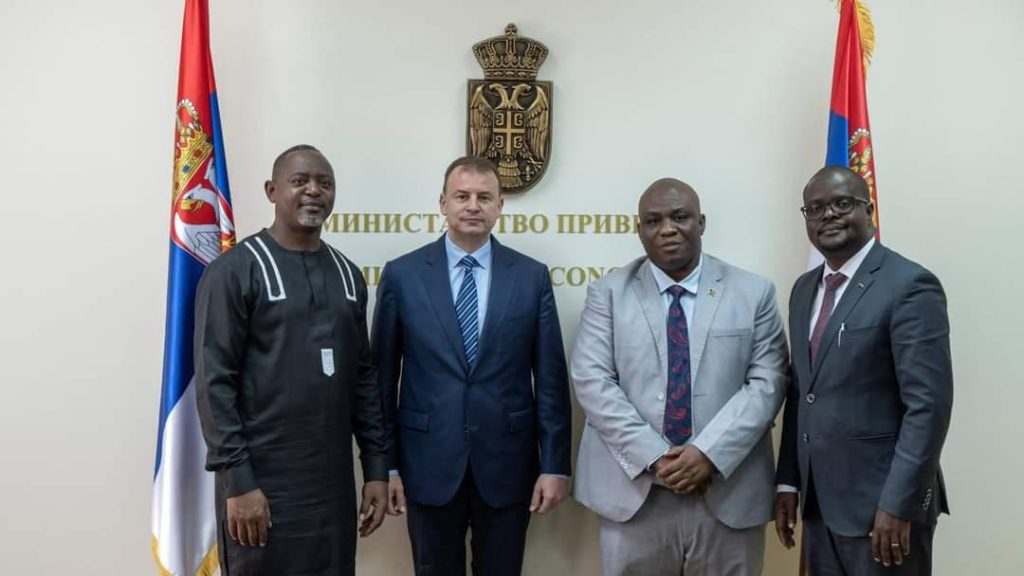
“E-Tech Systems was awarded the contract on merit after demonstrating the capacity to provide a solution at a time when some unscrupulous people and hackers were demanding a ransom running into billions of Kwacha from the government,” he said but fell short of explaining his relationship with Nick or the nature of his trip to Serbia where he was photographed alongside Nick and Mumba.

